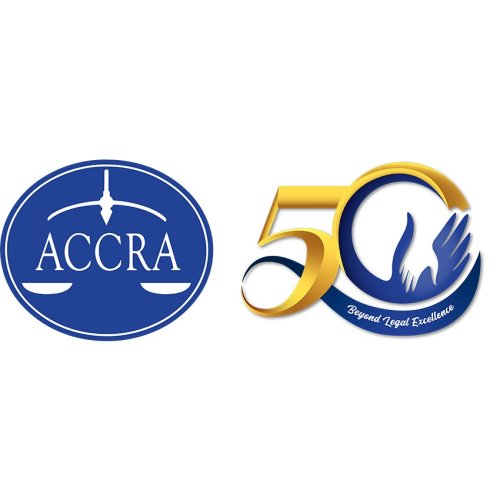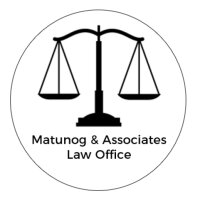Best Natural Resources Lawyers in Davao City
Share your needs with us, get contacted by law firms.
Free. Takes 2 min.
List of the best lawyers in Davao City, Philippines
About Natural Resources Law in Davao City, Philippines
Davao City, one of the largest urban areas in the Philippines, is endowed with abundant natural resources, including fertile agricultural land, rich minerals, and vast coastal areas. Natural resources law in the city encompasses various legal frameworks governing the use, management, and conservation of these resources. It includes regulations on land use, mining activities, water rights, forestry, and environmental protection to ensure sustainable development while balancing economic growth and environmental preservation.
Why You May Need a Lawyer
Legal assistance may be necessary in several scenarios when dealing with natural resource-related issues in Davao City:
- Land Disputes: Conflicts over land ownership or usage that require legal interpretation of property rights.
- Mining and Permits: Navigating the legalities of obtaining permits and addressing environmental concerns for mining operations.
- Environmental Compliance: Ensuring adherence to environmental laws and addressing any violations.
- Water Rights: Legal issues relating to access and use of water resources.
- Forest Management: Legal guidance on timber harvesting, deforestation concerns, and conservation initiatives.
- Regulatory Approvals: Assistance in securing necessary governmental approvals or dealing with regulatory challenges.
Local Laws Overview
There are several key legal frameworks specifically relevant to natural resources in Davao City:
- The Local Government Code of 1991: Provides decentralized resource management and environmental governance to local government units.
- Republic Act No. 7942 (Philippine Mining Act of 1995): Governs the exploration, development, and utilization of mineral resources.
- Republic Act No. 7586 (NIPAS Act of 1992): Mandates the establishment and management of protected areas.
- Presidential Decree No. 705 (Revised Forestry Code of the Philippines): Covers forest management, conservation, and protection policies.
- Republic Act No. 9275 (Philippine Clean Water Act of 2004): Addresses water quality management and regulation.
Frequently Asked Questions
What is the process to acquire a mining permit in Davao City?
Acquiring a mining permit involves several steps including exploration, environmental impact assessment, securing local government approvals, and obtaining consent from the Department of Environment and Natural Resources (DENR).
Can I legally harvest timber from my property?
You must obtain a permit from the DENR, adhering to specific guidelines under the Revised Forestry Code of the Philippines, even if the trees are on private land.
How do water rights function under local laws?
Water rights are governed by the Philippine Water Code, requiring appropriate permits for any utilization, development, and management of water resources.
What rights do indigenous peoples have concerning natural resources?
The Indigenous Peoples' Rights Act (IPRA) recognizes ancestral domains and rights, necessitating free, prior, and informed consent for activities affecting these lands.
Are there restrictions on foreign ownership concerning natural resources?
The Philippine Constitution restricts foreign ownership in certain natural resource sectors, often limiting it to a maximum of 40% ownership.
What legal measures exist to protect marine resources?
Laws like the Philippine Fisheries Code regulate fishing practices and aim to conserve marine biodiversity.
How can I contest a violation in natural resource usage?
You may file a complaint with concerned government offices like the DENR or local government units, potentially escalating to legal proceedings if necessary.
Is environmental impact assessment mandatory for all projects?
The Environmental Impact Statement (EIS) System requires projects with significant environmental impacts to undergo mandatory assessment.
What penalties exist for violating natural resource laws?
Penalties can include fines, imprisonment, and cancellation of permits, depending on the severity and nature of the violation.
Who is responsible for enforcing natural resource laws in Davao City?
Enforcement is primarily the responsibility of the DENR, along with local government's environmental offices and legal units.
Additional Resources
The following resources and organizations can be instrumental for individuals seeking legal advice on natural resources in Davao City:
- Department of Environment and Natural Resources (DENR): Primary government agency for natural resource management and regulation.
- National Commission on Indigenous Peoples (NCIP): Agency responsible for protecting the rights of indigenous peoples.
- Davao City Local Government Environmental Office: Handles local environmental governance and compliance.
- Environmental Legal Assistance Center (ELAC): Provides legal aid and advocacy related to environmental issues.
Next Steps
If you require legal assistance in matters concerning natural resources in Davao City, consider the following steps:
- Consult with a lawyer specializing in natural resources to understand the specific legal dynamics of your issue.
- Gather all relevant documents and information that can help in presenting your case to a legal professional.
- Engage with local government units or agencies like the DENR for guidance and compliance requirements.
- Explore alternative dispute resolution mechanisms if appropriate before pursuing formal litigation.
Seeking professional legal advice is crucial for navigating the complexities of natural resource laws effectively and ensuring compliance with regional and national regulations.
Lawzana helps you find the best lawyers and law firms in Davao City through a curated and pre-screened list of qualified legal professionals. Our platform offers rankings and detailed profiles of attorneys and law firms, allowing you to compare based on practice areas, including Natural Resources, experience, and client feedback.
Each profile includes a description of the firm's areas of practice, client reviews, team members and partners, year of establishment, spoken languages, office locations, contact information, social media presence, and any published articles or resources. Most firms on our platform speak English and are experienced in both local and international legal matters.
Get a quote from top-rated law firms in Davao City, Philippines — quickly, securely, and without unnecessary hassle.
Disclaimer:
The information provided on this page is for general informational purposes only and does not constitute legal advice. While we strive to ensure the accuracy and relevance of the content, legal information may change over time, and interpretations of the law can vary. You should always consult with a qualified legal professional for advice specific to your situation.
We disclaim all liability for actions taken or not taken based on the content of this page. If you believe any information is incorrect or outdated, please contact us, and we will review and update it where appropriate.











